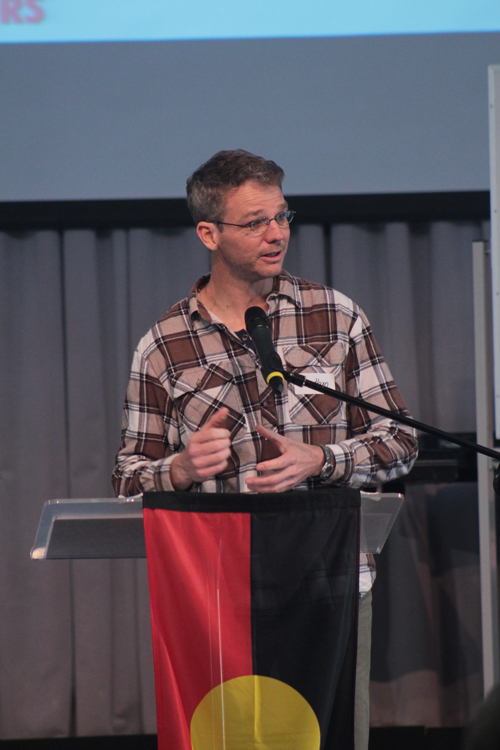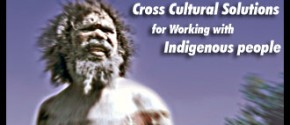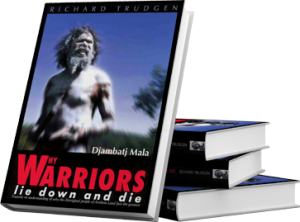The AHED Project (the not-for-profit arm of Why Warriors) held its first conference on 24th May 2014 in Melbourne in collaboration with Manna Gum, TEAR Australia, Surrender, Essendon Baptist Church and Tabor College, titled: Future Dreaming: Purpose, Passion & Power in Remote Indigenous Communities
Videos of the main plenary sessions are now available for viewing:
Session 3: Jonathan Cornford (co-founder, Manna Gum)
Title: The Road to Restoration: So many attempts at ‘helping’ Indigenous communities have proved counter-productive. What does the Bible tell us about what healing and restoration requires of Indigenous communities and those who would walk with them? (notes included below)
Notes to accompany Session 3:
Towards Healing & Restoration: A Biblical Perspective
Introduction
Does the Bible have anything to contribute to the question of what it means to seek healing and restoration for indigenous communities?
Of course, some might find it odd asking this question, as Christianity and the church has been complicit, and it is not a simple history – there were huge variations according to time, place, denomination, superintendent – Methodists missionaries in Arnhem Land were probably better than many. Nevertheless, Christianity was associated the European invasion that has been so catastrophic for indigenous peoples – we ignore this history at our peril. But if wrong was done in the name of right, then this only sharpens the question:
How is it that people with good intentions can end up doing harm?
Is there not still a danger that we might still be capable of doing harm in the name of good intentions? This is precisely what is happening now: how do we stop repeating history? If Christianity has been involved in doing harm it is because it has not taken the Bible seriously enough – the Biblical story has something vital to say about healing: about what is, but also how it should be pursued. The subject of healing in the Bible has a vast territory – at its core the whole story is all about healing and restoration – so I just want to focus on two things in particular:
- How, if we are concerned about the healing of another, the Bible directs us to think about own culture;
- How the Bible forces us to broaden our conception of health to bring into view the whole person (body, mind and spirit) located within a community and within creation
Confronting our own ill-health
First things first – first the log in our own eye:
“Do not judge, so that you may not be judged. For with the judgment you make you will be judged, and the measure you give will be the measure you get. Why do you see the speck in your neighbour’s eye, but do not notice the log in your own eye? Or how can you say to your neighbor, ‘Let me take the speck out of your eye,’ while the log is in your own eye? You hypocrite, first take the log out of your own eye, and then you will see clearly to take the speck out of your neighbour’s eye.” Matthew 7:1-5
This teaching is from the Sermon on the Mount – core to Christianity – can we apply it from the personal level to a much larger canvas?
The log that is in the eye of Western culture.
We cannot approach the subject of understanding the healing and restoration of another without first becoming acutely aware of our own ill-health. It’s not about fair-mindedness: it is a question of what we are able to see if we have not become more aware of our own reality. (NB today talking about indigenous communities, but same goes for poverty alleviation in international development, etc)
So much good-intentioned effort to help the vulnerable, the broken, and the less fortunate, is premised on a deep subconscious assumption that when we are pursuing justice and equity, what we are seeking is for everyone to live like us (ie middle-class Western culture).
There is a word for this: it is called “Development”. It’s based on the assumption that liberal, modern, Western, capitalist culture represents the pinnacle to which all humanity is progressing. Some of what we call ‘poverty’ is merely the absence of development.
The Close the Gap campaign has taken the task of drawing public attention to indigenous disadvantage. However, there is a danger when campaigns such as the Close the Gap frame the problems primarily in statistics about health & education (I don’t want to be critical of this campaign, but point to some of the problems with the way we usually do things). Of course, these statistics are a disgrace and they tell us something is deeply wrong, but they don’t say anything about WHY things are the way they are.
We have a habit of treating the symptoms, not the causes, and as has happened, it leads too quickly to the assumption that what we need is simply more services and more professionals. It requires spending lots of money quickly. It also makes the assumption that what they need is DEVELOPMENT, which is code for: what they need is MORE of the dominant culture exerting more control over their communities. As you will find in Why Warriors Lie Down and Die, this is the very source of the problem.
So much of our effort is trying to make Indigenous communities more like us, but how well are we?
By almost any measure you choose to look at, western society is deeply unwell:
i. Social indicators: depression, addiction, family breakdown, fragmentation of community, alienation & loneliness,
ii. Our physical health is in decline
iii. Our way of life cannot be sustained by the planet.
Evangelists of this way of life are rather like the Pharisees of whom Jesus said: “Woe to you, scribes and Pharisees, hypocrites! For you cross sea and land to make a single convert, and you make the new convert twice as much a child of hell as yourselves.”
In the Bible, Revelation is addressed to communities in a very similar situation to ours: urbanised, wealthy, comfortable secure corner of the Roman Empire – a civilisation that was at the pinnacle of economic, cultural and technological advancement and sophistication. Yet the angel in chapter 18 looks through the veneer of dominance and achievement to see the appalling cost:
“Fallen, fallen is Babylon the great … Come out of her, my people, so that you do not take part in her sins.”
For this reason that a central and continual thread of the Bible is to call people out of the mental and spiritual straightjacket of the dominant culture. Paul says: “Do not be conformed to this world, but be transformed by the renewing of your minds, so that you may discern what is the will of God– what is good and acceptable and perfect.” (Romans Chapter 12)
Becoming aware of the shortcomings of our culture means becoming aware of the idols that we hold dear: the idol of professionalism: this applies to doctors, nurses, teachers, lawyers, social workers, psychologists, accountants, bureaucrats, etc …We need to understand professionalism for what it is: it is the refinement of Western knowledge to its sharpest point in a particular discipline à there is immense power in mastering the knowledge we are deploying. However,it is also the most refined version of our assumption that we have the answers – ‘best practice’ can be as dogmatic a religion as ever there was. Professionalism, at its worst, can be a way of ignoring all other knowledge. Why Warriors Lie Down and Die shows the disastrousness of such assumptions.
- I am NOT saying that professional training is of no value – it is of very much value – but it needs to be put in its proper place à for it to be fully valuable, we need to be able to question it and see its shortcomings and its limits.
-
-
- More than anything, healing requires people who are compassionate, self-reflective, humble with common sense; if we can have such people who have mastered their respective professions, how much the better.
-
So,before we can talk of the healing of another we must have a clear view of our own need for healing. Once we recognise this, we will recognise that what is required for healing and restoration for Indigenous communities is, in essence, the same thing that is required for healing and restoration in our own culture, even if the outworkings of that look quite different.
Healing and the whole person
What does the Bible have to say to us about what health is? What is a human being?
N.B. we are turning to the sacred texts of the Hebrew people – a people who are closely tied to a particular patch of the earth, who are marginal, and continually suffering from and struggling against the economies and cultures of the dominant powers weighing in on them . This is rare in history, they are texts from below – how amazing that this marginal and oppressed people had such profound insight that it still electrifies us today.
Two creation stories in the Hebrew dreaming can teach us:
- The first one says something which in the ancient world was entirely unique: that every human being is stamped with the image of God à an estimable dignity.
- The second story tells us that a human (Adam) is shaped from the addama (soil). ie We are earth infused with spirit, not just bodies seeking gratification, or souls awaiting release. In the language of the New Testament in the Bible, (esp. Paul) we are soma, psyche, pneuma: body, mind, spirit.
The consistent language of Old and New Testament is that what God intends for us is Holiness (God is Holy). This does not mean that God wants us to be boring, serious, otherworldly “spiros” – but the opposite: God’s intention for us is an earthy wholeness: integration of body, mind and spirit.
So if we are to talk about healing and restoration, then we must have in view that we are talking about people who are not just bodies, nor are they just souls.
Health can only have real meaning when it talks of body, mind and spirit together.
What are the implications of this? Let me name three:
1. Man cannot live by bread alone.
In the gospel accounts in Matthew and Luke, we have stories of Jesus undergoing a wilderness struggle with Satan. The first temptation is: “if you are the Son of God, command these stones to become loaves of bread”. If you are he who is going to set the world to rights, you will need the power to feed people, ie you will need economic power (‘bread’ as cash has resonance). Therefore, if you want to change things, you will need lots of money.
Here is one of the deep lies of our culture: that money solves social problems. Of course, money used well and with patience, discipline and purpose can do good, but unfortunately much of the money thrown at Indigenous communities has not been used in that way, and has very often had little effect, or has even been destructive.
- Jesus response is simple and profound: Man does not live by bread alone. Deuteronomy chapter 8 says that the needs of the body are real, but there is so much more that we nee.
2. We need purpose
- Genesis 2:15 – God place Adam in the garden to work it and to keep it.
This is the first vocation given to humanity (Paul: the calling of God is irrevocable) purposeful work is central to the DNA of human beings, no wonder the stripping out of meaningful work from the Yolnu, to be replaced by welfare, has been so demoralising. It is not just any work: work of care and nurture, work of service to the earth, work of contribution: good work.
What constitutes good work?:
- Dignity in working to sustain yourself and your family
- Good work: creative and skillful – willing and ‘wise-hearted’
- Bad work – not all work is good for us – the first effect of the fall is the transformation of work into toil.
- Oppressive and exploitative work is not good work
- Futile work – work that serves no good purposes, or work for bad purposes, is not good work.
3. We need connection
From the story of Abraham on, the whole movement of the Bible is towards bringing humans into communion: not just into communion with God, but with each other, and with creation itself – Paul (2 Corinthians chapter 5) tells us that God’s work in Jesus is the work of reconciling the whole cosmos to himself – not just people, but creation. There is no such thing as individual salvation: by definition salvation is being drawn into the communion of love.
We are made for connection: this means we need to think about the role of culture in human health.
What do I mean by culture? Wendell Berry:
“A culture is not a collection of relics or ornaments, but a practical necessity, and its corruption invokes calamity. A healthy culture is a communal order of memory, insight, value, work, conviviality, reverence, aspiration. It reveals the human necessities and the human limits. It clarifies our inescapable bonds to the earth and to each other. It assures that the necessary restraints are observed, that the necessary work is done, and that it is done well.”
By this definition of culture, we can say that the Yolngu people had a strong culture indeed, undermining it is indeed calamitous. Let us not do them the injustice of imagining that it was somehow an ideal culture, that they were not people just like us whose fallenness is inevitably manifest in different ways in culture.
- the New Testament takes very seriously the role of culture in human community – it insists God’s interaction with humanity (healing and restoration) must take on the different cultural forms of every people – meaning of the “Word made flesh”, meaning of Apostle Paul’s work, Matthew 28.
- God’s interaction with culture is the same as it is for us as persons: it affirms and fulfils what is good in that culture, and it shines the light on what is fallen in that culture, and calls for change – ie. it restores health to culture.
- If we are concerned to support work of healing and restoration we cannot neglect the essential role that culture plays in the wellness of a community.
In conclusion, let me summarise very simply what I have been saying.
- Firstly, I have been arguing that the Bible has something vital and profound to say about healing: about both what it is and how it is pursued. In particular the Biblical way of healing is one that takes enormous care to avoid doing harm in the name of good intentions.
- Secondly, if we are concerned to support the work of healing and restoration in Indigenous communities, we must become suspicious about some of the claims and presuppositions of our own culture.
- Lastly, if listen to the wisdom of the Bible, then we must broaden our definition of health to include the whole person (body, mind & spirit), a person who cannot stand alone, but must be located in culture, in connection with community and the earth.
Let me finish by quoting those immortal words of Lilla Watson, from the Gangulu people of Central Qld:
“If you have come here to help me, you are wasting our time.
But if you have come because your liberation is bound up with mine, then let us work together.”
About the presenter: Jonathan is a co-founder of Manna Gum, a ministry in good news economics. He has a background in political economy and international development, and before that, studied race relations history in Queensland. He lives in Bendigo, with his wife and two daughters.
Please click here to view the other conference sessions:
Session 1: Joanne Garnggulkpuy (Managing Director, Yalu Marnggithinyaraw) and Gwenda Baker (Monash University).
Title: The history of economic development in Arnhem Land – then and now.





Future Dreaming Conference: Session 1 •
[…] Session 3: Jonathan Cornford (co-founder, Manna Gum) Title: The Road to Restoration: So many attempt… […]
Future Dreaming Conference: Session 2 •
[…] Session 3: Jonathan Cornford (co-founder, Manna Gum) Title: The Road to Restoration: So many attemp…(notes included) […]